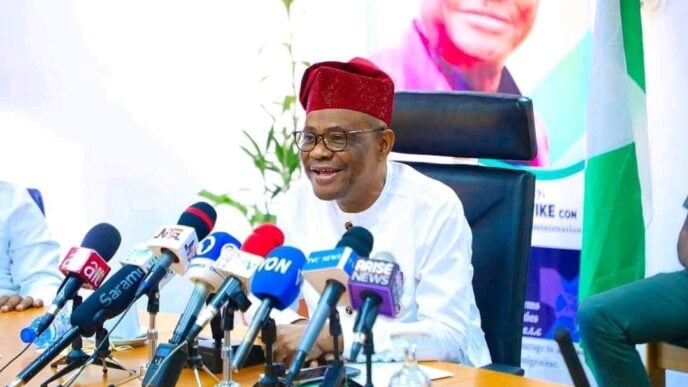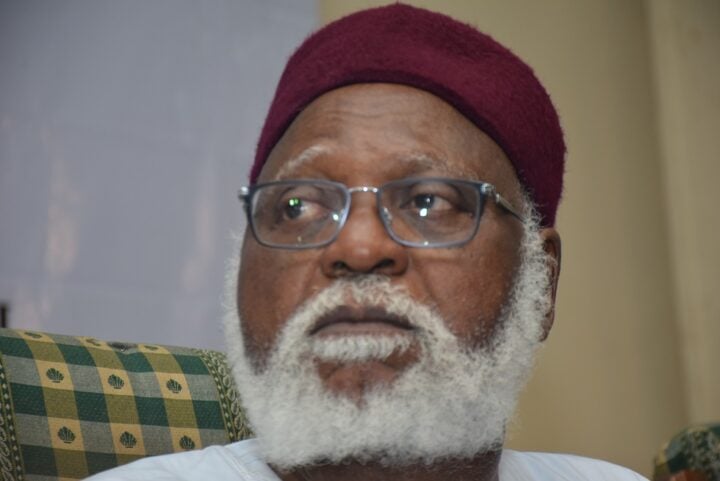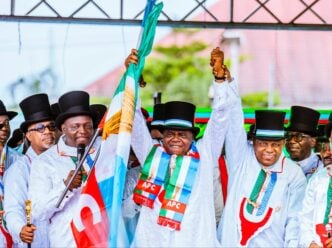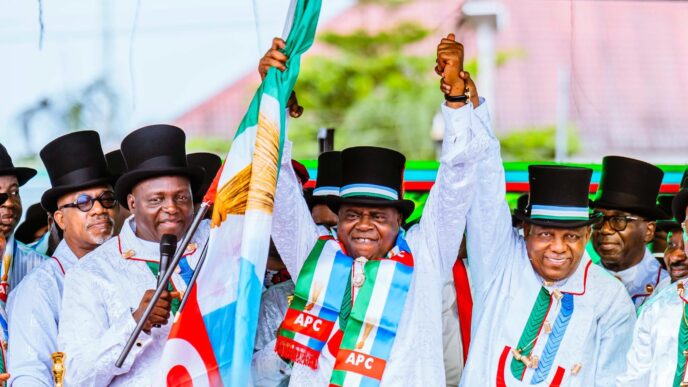The Centre for the Promotion of Private Enterprise (CPPE) says the recent threat of possible military action against Nigeria by United States President Donald Trump could trigger capital flight and weaken the naira.
On November 1, Trump asked the United States department of war to prepare for “possible action” to wipe out Islamic terrorists in Nigeria.
He warned the Nigerian government to act fast to end the “killing of Christians” in the country, adding that he would order an immediate end to all aid and assistance to Nigeria.
The threat came a day after Trump redesignated Nigeria as a “country of particular concern” in response to allegations of a Christian genocide in the country.
Advertisement
He blamed radical Islamists for the “mass slaughter” of Christians in Nigeria.
In a statement on Monday, Muda Yusuf, chief executive officer (CEO) of CPPE, said the threat could have far-reaching implications for the country’s economy and investor confidence.
Yusuf said although Trump’s comment appears to have been based on “incomplete intelligence and misjudged assumptions,” its source — president of US — gives it potential impact.
Advertisement
“Regardless of its inaccuracy, the pronouncement has already generated economic, diplomatic, and perceptional consequences for Nigeria,” the statement reads.
“The statement risks undermining the country’s image as a stable investment destination, unsettling financial markets, and eroding confidence among both domestic and international investors.”
‘NIGERIA’S SECURITY CHALLENGES COMPLEX, NOT STATE-ENGINEERED’
According to the CEO, Nigeria’s security challenges are complex and multifaceted, involving issues such as insurgency, terrorism, farmer-herder clashes, communal conflicts, banditry, kidnapping, armed robbery, and boundary disputes.
Advertisement
He said victims of the crises cut across all religious and ethnic lines, stressing that the conflicts are “not state-engineered but socio-economic and governance-driven”.
“The Nigerian government has consistently prioritized security — with defense and security allocations constituting the highest share of recent national budgets,” the CEO said.
“Any suggestion of government complicity in these atrocities is grossly misleading and unfair to the present administration.”
Yusuf said the mere threat of military action by a global superpower has inflicted reputational damage on Nigeria’s image as a safe and viable investment destination.
Advertisement
He warned that such rhetoric could lead to a decline in foreign direct investment (FDI), capital flight from portfolio and equity investors, decline in venture capital and startup funding, heightened country risk ratings, and investor anxiety.
“Market volatility would likely intensify as investors reassess Nigeria’s risk profile,” he said.
Advertisement
“Likely consequences include falling stock market valuations, rising country risk premiums and insurance costs, higher sovereign bond yields, and naira depreciation due to capital outflows and portfolio reversals.”
The economist added that perceived geopolitical risks could tighten financial conditions and distort macroeconomic indicators, with rising interest rates, weaker currency, reduced foreign reserves, and higher inflationary pressures.
Advertisement
To mitigate the risks, Yusuf advised the federal government to adopt a proactive diplomatic strategy, including high-level diplomatic engagement with the United States government to clarify facts and de-escalate tensions.
He also recommended strengthening security partnerships, enhancing communication to reassure investors of Nigeria’s stability, and deepening domestic reforms in governance and macroeconomic management to reinforce resilience against external shocks.
Advertisement
‘UNILATERAL MILITARY ACTION WILL DESTABILISE NIGERIA’
Yusuf described Trump’s statement as “unwarranted, counterproductive, and economically destabilising,” saying it represents a disproportionate response that fails to reflect Nigeria’s internal security realities.
He urged that any external engagement with Nigeria on security matters should be “cooperative, not coercive”.
Yusuf stressed that unilateral military action would destabilise Nigeria’s economy, threaten regional stability, and aggravate humanitarian conditions.











